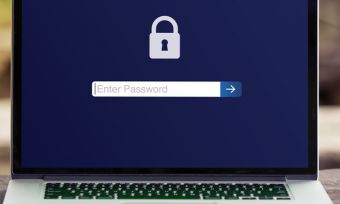The Banking Ombudsman urges Kiwi travellers to be vigilant with credit cards to avoid credit card fraud when travelling.
Credit card fraud can certainly cause panic so it helps to know that, in general, banking customers are reimbursed after the events of credit card fraud.
However, you can be denied reimbursement if you don’t inform your bank about the credit card scam straight away, or before the payment has gone through.
So, for this reason – and following the controversy surrounding Fyre Festival – now’s a better time than ever to ensure your money isn’t going into the pockets of the wrong people.
Here is Canstar’s guide to help you avoid credit card fraud overseas.
-
Consider a RFID blocked wallet
With technology developments come more ways for scammers to get access to your hard-earned money. Credit card scammers no longer have to actually physically touch or see your credit card in order to access the funds, nor do they need to use online platforms. Credit card skimmers, called RFID scanners, can steal your credit card number, expiration date, full name and passport details, simply by brushing against you. One way to prevent this credit card fraud is by purchasing an RFID blocked wallet which blocks the scanners from working.
-
Delete browsing history, passwords and cookies

Again, technology can be a burden when it comes to credit card fraud. Make sure you delete your browsing history and credit card password off your phone, BNZ advises. While it may seem convenient to save passwords in the notes app on your phone, this makes easy access for credit card scammers. Also, clear caches and cookies on your browsers.
You may be wondering what is a cache? A cache is basically a software component in your phone or laptop that saves your activity data to make it easier and faster when searching for that data in the future. Therefore, clearing caches will get rid of credit card information.
And what are cookies? Cookies – in terms of browser data – is similar to caches in the sense that the user’s browser activity is stored. However, in this instance, the data is sent from the website and stored in the user’s device. You don’t want any data stored as credit card fraudsters can hack into this data and access your credit card details.
We recommend you use an incognito window when entering your credit card details on any browser, so you don’t have to worry about constantly clearing caches and cookies.
Don’t know if your credit card is right for travel spending?
Compare credit cards for free with Canstar!

-
Don’t let your card out of sight

Sometimes even those that are usually trustworthy can be the ones behind the credit card fraud. In many cases, restaurant staff steal credit card details when given credit cards to pay. To avoid this, constantly watch your card and don’t ever put your card in the bill slip. This can also apply in hotels, taxis and the like so always be wary and watch your card, even in seemingly trustworthy situations.
-
Contact your bank promptly
If you believe your credit card details have been stolen, call your bank straight away, BNZ stresses. The faster you get a hold of them, the more of a chance you have of putting a stop to the credit card scammers tricks. Make sure you’ve got the most suitable credit card for your travels by comparing low interest credit cards below.
Compare credit cards with Canstar
-
Make an alert
Set up an alert with your bank or provider to ensure you are sent an email or text when your funds go under a certain amount, ASB suggests. Credit card fraudsters will likely drain you of all of the money or a substantial amount on the card and therefore when the balance goes under a certain amount you will know you’ve faced credit card fraud. Checking financial accounts isn’t often on the top of our list when travelling so unfortunately for many, it takes them weeks or months before they notice their credit card funds have been stolen. And by that point, it can be too late. This leads us to our next tip to avoid overseas credit card fraud…
6. Monitor your accounts during and after your overseas trip
According to the Banking Ombudsman, it’s important to contact your credit card provider as fast as possible if you believe you are a victim of credit card fraud. And that’s why you should frequently check your accounts while travelling and even months after you arrive home.
-
Restrict accounts with big balances being linked to your credit card
Specify accounts linked to your card and restrict access to accounts with big balances. The last thing you’d want is a credit card scammer accessing all your funds in other accounts. If you’re worried your current credit card isn’t up to scratch, we make it easy and compare credit cards for you. Use our credit card comparison tool below and you could also save yourself some money on interest!
Compare credit cards with Canstar
Examples of credit card frauds while overseas:
Here are some common credit card scams tourists experience while travelling:
- A common overseas scam is the “friendly ATM aid” where a local will seemingly try to help you evade local bank fees but, unbeknownst to you, they actually sneakily scan your credit card with a card skimmer. While you’re entering your pin, the individual memorises it and then accesses your account and ranks up a bill on your card. A second person – or even more people – can be in on the scam. An innocent person wouldn’t want to stand near you at an ATM – due to respect of privacy – so make sure you’re aware of this when using an ATM overseas. If these events do happen to you, simply walk away.
If you feel as though someone is standing too close for comfort, then either use another ATM or wait for them to leave. And, when travelling, always cover your pin while entering your pin!
- If you’re out and about or out for drinks and you find someone is coming on to you pretty strong, be aware. There’s no need to cancel out flirting altogether when travelling. But be aware that this is a common technique used to be able to commit credit card fraud, bill payment or being drugged and robbed.
We recommend to pay for your own drinks as you go and don’t allow the flirty companion near you when you enter your pin. Always keep an eye on your drink, too.
- Fake WiFi networks – Have you ever needed internet and gone straight to WiFi networks in the hopes an individual or nearby café has an unsecured WiFi hotspot? Well, this is a dangerous route to go down when travelling. Hackers set up fake hotspots and, as soon as you connect, access all your online accounts, including your credit card details.
Check with staff to see which network is the one to connect to and to be extra careful, encrypt your online activity.
Compare credit cards with Canstar
While there is no sure-fire way to prevent credit card fraud, there are ways to help avoid it. With our tips, we hope you have peace of mind when travelling overseas and, as a final word of advice, be aware but don’t be scared.
Nowadays, you can quickly claim unauthorised purchases on you account, so try not to panic if you realise funds have been stolen because, most of the time, this will only be temporarily.
Want more finance tips?
Save money by researching home loan rates
Sign up for free to receive more news and guides, straight to your inbox.




Share this article